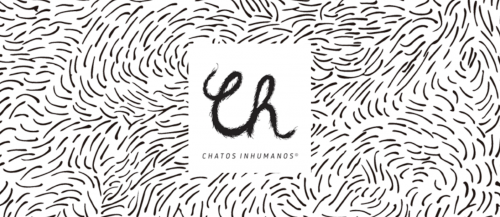COFFEE HOUSE PRESS: RETHINKING THE READER-WRITER RELATIONSHIP OFF THE PAGE
LAURA MARINA BORIA
Coffee House Press no longer sees itself as a publisher but as a facilitator, connecting artists and audiences. Sometimes these connections even occur without books. This makes Coffee House’s Editor-in-Chief Chris Fischbach ask what is a publisher in the book industry when books are taken out the picture? The answer often lies in a combination of community-building and cultivation of relationships.
Coffee House started as a mimeo magazine and fine letterpress printer in Minneapolis, Minnesota, in 1972. They participated in the small press movement of print production in the 80s by printing trade books in 1984. Fischbach joined the team in 1994 and became editor in chief in 2011. Coffee House has since added e-books, a website, and social media to its operations. Among other independent publishers in Minneapolis (Graywolf Press and Milkweed Editions), they distinguish themselves by their Books in Action publications and programs, which invite artists and people from public and private sectors to devise new ways of engaging with storytelling. Coffee House is also translating the work of Latin American authors, including Mexican Valeria Luiselli, Argentinian Rodrigo Tiziano, and Colombian Juan Cárdenas.
Fischbach shared his thoughts with Laura Maria Boria on artist-audience interaction, off-the-page programming, and translating manuscripts from Spanish to English during the Los Angeles Review of Books’ Summer Publishing Workshop hosted by the University of Southern California. The interview has been edited for length and clarity.
LAURA MARIA BORIA:
How did you first hear about Coffee House Press?
CHRIS FISCHBACH:
When I was an undergraduate and Allen Ginsburg was in St. Paul for a fundraiser at Coffee House Press, one of my professors had a VIP ticket but couldn’t go. So he asked me if I wanted to go, and I went. That was the first time. I don’t even know if I was fully aware of what it was, but I was there.
LMB:
Audience-artist interaction and off-the-page programming are central to Coffee House’s current mission, which often involves coordinating efforts between artists, governmental and private sectors, and audiences. How does the brainstorming and prioritizing of Books in Action publications and programs take place at Coffee House?
CF:
First and foremost, we have to take care of the book publication program because that pays the bills and grants. So the books, grant writing, and fundraising have to come first because we have to pay our staff, their insurance, and the rent. When we are able to carve out extra time, we follow up on what excites us the most. Within that context we think about demographics, making sure we’re working with host institutions, artists, and writers who are racially diverse. Then it becomes a question of whether a program compliments a book that we have coming out and whether it could help with the publicity.
I’m bullish on the future as long as funding remains in place at government and various other levels.
LMB:
What do you think the industry will look like in upcoming years for independent presses in the US?
CF:
I think it has been growing. There are more independent bookstores and those are good for independent presses. As corporate publishing continues to publish fewer and fewer literary titles, that falls to independent presses. That’s fortunate for us because there’s still a strong readership. It’s just not strong enough for a corporate enterprise. But I’m bullish on the future as long as funding remains in place at government and various other levels.

LMB:
Coffee House is increasingly publishing translations from works by Latin American authors. How are your selection criteria similar or different when handling manuscripts in English and other languages?
CF:
In English, more people on staff can look at the manuscripts. Valeria Luiselli is a contributing editor, Diana Hernandez is a scout, and Lizzie Davis is a translator. We may ask Valeria and Diana if they know about a given author. If there are two or three people who know them, then Lizzie will also read them. Sometimes she’ll prepare a sample that I can read. I’ll ask Lizzie a lot of questions. So, there are more people involved when handling manuscripts in Spanish. Even though fewer people on staff can read them, more people are involved because I have to listen to those I trust. Both Valeria and Diana know our list and aesthetic very well. It’s very rare that I’ve read none of it, because Lizzie will translate five to ten pages so I can get a sense of their style.
I enjoy the process a lot. Handling international manuscripts is also very gossipy, since you go to the Guadalajara, London, or Frankfurt Book fairs. Another thing is, I see who else is publishing this or that author in other countries. I have relationships with French, Italian, German editors and such. If I know which editor acquired them at a different house, that also tells me something because I trust that person’s taste. It’s more of an international community of people sharing literary taste and stories.
LMB:
What advice would you give to someone considering a job in publishing?
CF:
When you’re looking for a job, be patient. Put yourself out there as much as possible in the industry, so when there’s a position open people know to call on you. Figure out the places you want to possibly work at and get in touch with them. Read manuscripts for them. Be in touch with someone there and keep them up to date about your work plans as long as you know they’re friendly and receptive to that.
Then it’s a question of working hard and seeing what you can bring to the publisher as opposed to what they can do for you. A lot of times when people first entering the workplace, they will talk about what this will do for their career which is a bad mistake. Be willing to do the things that other people won’t do. Make connections. Unless you’re coming into it with money, you’re not necessarily going to become wealthy. If having a lot money is important to you, you need to either have it already or find someone to partner with that has a lot.
LMB:
What books published by Coffee House are you currently excited about?
CF:
Valeria Luiselli’s book Tell Me How it Ends: An Essay in Forty Questions (2017) has been an important book for the country, especially shortly after the last presidential election. It made us feel like we were doing something important by rushing that book out. Hernan Diaz’s book In the Distance (2017) did very well. It was a Pulitzer Prize finalist, and it’s very rare for a small press to have a Pulitzer finalist. That’s a cool story too for our kind of publishing because he’s Argentinean, grew up in Sweden, and now lives in New York. It’s a novel about the American West but turns upside down a lot of immigration tropes. Justin Phillip Reed’s book Indecency (2015) won a National Book Award for poetry, which is incredible. Roque Larraquy’s book Comemadre (2018), translated by Heather Cleary, was long-listed for a National Book Award for translation. That’s a really bizarre book. I was worried no one would read it, but it turned out to be very popular. That happens a lot; when I worry no one is going to read a book because it’s too weird, the book actually does okay. That’s a good sign.
 LAURA MARIA BORIA
LAURA MARIA BORIA
Laura Marina Boria is a doctoral student in Iberian and Latin American literatures and cultures at The University of Texas at Austin. She completed a master’s degree in journalism at UT and a bachelor’s degree in comparative literature at The University of Puerto Rico at Rio Piedras. Her interests include twentieth and twenty-first century Caribbean literature and performance art, and new materialisms in the arts and culture. She is also a big fan of audio storytelling.
Twitter: @lauramboria












